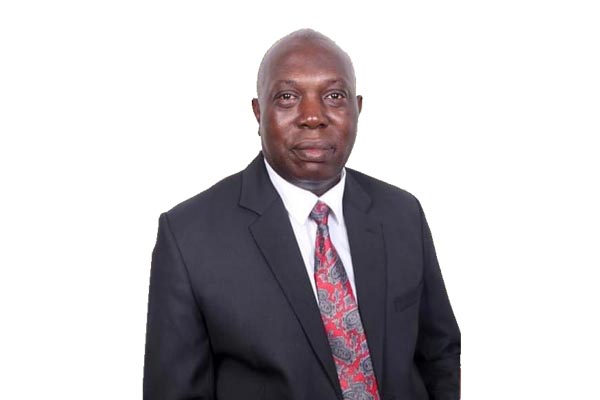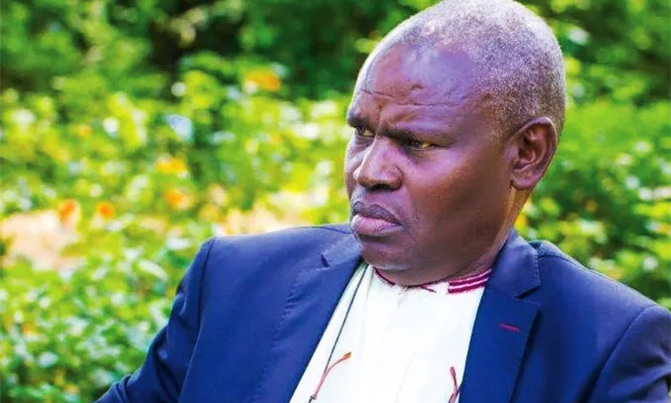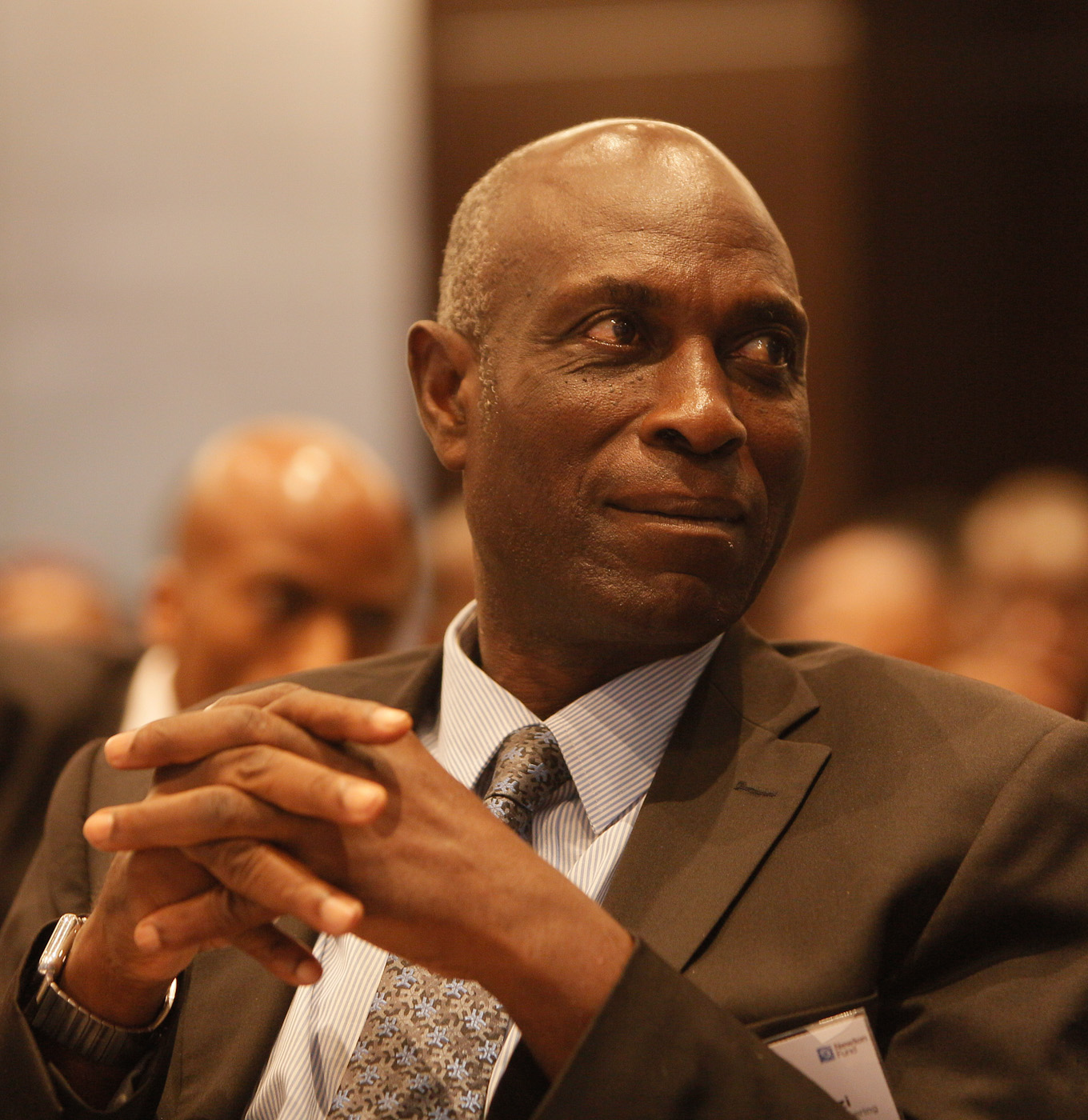Early this year I received a whatsap message from a man known to many as Eng Bugaba of Uganda Communications Commision ( UCC). But for his classmates he was known as Quick feet. Our King’s College Budo class year (1977-83) had in appreciation of the education we received there long decided to sponsor at least one needy student every year. The man spearheading this class project was none other than Simon.
“Just contacted the Deputy,” he wrote. “He says he will give us a shortlist next week.” In the midst of a busy schedule as a top official at UCC, Simon had gone at great lengths to gather details of needy students at Budo.
A four person select committee he headed had decided that our next sponsor should this time be a girl. Simon came up with four names. When we met on April 7th, 2021 he had already done investigative work breaking down the students home environment, performance and needs. It did not take us long to agree on one girl. Once we presented her to the rest of classmates, there was immediate agreement to support her.
Job well done. That is why we called Simon, Quick feet.
I first met Smon in 1981 as a new A’level student (njuka) at Budo. Perhaps because of his soft spoken nature, and unassuming ways, he didn’t make a fast impression on me. For him he had joined Budo in 1977 coming from up country Primary schools- based at Sempa, Bulindo, Bamusuuta and one in Kiboga. Having excelled and being needy he was admitted on a Bursary scholarship, something he would never forget.
Besides enjoying his academics, Simon took on a past game at Budo, cricket, where he tortured opponents as a wicked batsman. Volleyball was another of his passion and he loved spurring on the opposite side of the net with his classmate, now Dr George Mutema. However, another even more consuming interest was that Simon was a very committed Christian.
In his first year at Budo, together with his house mate, Tim Sentongo, and Isaac Kronde, during one “contact” fellowship the trio committed their life to Jesus Christ as Lord and personal savior. “One of our earliest joint encounters was when Douglas Kisaka was heading Contact choir in 1977,” remised Isaac, years later. “Simon and I tried to join but were turned down..”
The young enthusiastic converts were not deterred. Simon, together with Tim and Isaac studied closely together, and returned for A’level, with him taking on the demanding PCM combination. On meeting him in Canada House, spite of my then indifference to his faith, we developed a healthy respect for each other, largely due to his genial character. Indeed, when in our final year he was appointed House prefect there was unanimous support for him, especially for those of us often at the wrong side of the law. I could count on him for bailing me out whenever I got into trouble, which was not that rare, to be conservative.
As prefect Simon took it upon himself to welcome and mentor those who joined Canada House. One S1 student, now Enoch Sebuyongo, would later recall how he was not only warmly received, but was encouraged by him to commit his life to Christ, just as he had done in SI. “One day he gave us a word of encouragement,” now Dr Enoch Sebuyongo would later recall, “from Psalms 34:8- Oh taste and see that the Lord is good; Blessed is the man who trusts in Him!”
Simon was affected by the NRM led 1980- 5 guerrilla war which was perched in his home area of Luwero. Unable to return home the family of his friend Tim Sentongo took him in where he became an adopted son. After passing A’level both joined Makerere university in the 1981 class year, with Simon taking a B.Science degree; Tim going for medicine; while Isaac was admitted for a Bsc Agric. Admitted into Lumumba hall, he and Tim, who would later became Chair of the Christian Student Fellowship, were also roommates.
Around that time one of the most thriving evangelical church in Kampala was the Redeemed Church, just outside Makerere university main gate. Built of reeds ( kiwempe) the church preached fervently for any who cared to listen to accept Jesus as a personal saviour. Simon, along with Isaac, not only joined this church but soon bandied up with a number of university students, including Alen Kakuyo Kagina, later to head the UNRA and Jennifer Lubwama Musisi, later to head KCCA, to form the Restoration Band. “Simon played drums,” recalled Isaac, sometimes bass, but also sung. A famous song he led was written by Ben Kayizi, called “Bind man”!
Soon after graduating, in 1988, Simon took up employment with then Uganda Post and Telecommunications Limited ( UPTL). These days it is quite rare to find someone who works for virtually one organization for all his entire life, which was to be his case. He started out at the bottom in the regulatory department, along with one of his Budo classmates, Eng Miriam Wambuzi Kawuma.
In mid 1990s after the liberalization of Uganda’s economy, UPTL was broken up into Uganda Telecommunications Limited (UTL), Uganda Postal Limited (UPL) and UCC. Of the three splinter organizations, UCC, was certainly much smaller and perhaps with less prospects. In hindsight it must have been providence that led Simon to move to the unknown new entity, UCC, in 1998 as one of the first staff there. As Uganda’s telecommunication industry grew, Simon would grow with it, eventually making him as one of the leading telecommunications expert in the country.
In 1998 as a result of liberalization policy the radio industry had opened up to new private stations. I happened to be involved in starting one new FM station, Power FM, and often found myself dropping by his office, based at Communications house, which was responsible for regulating license.
It is there that I came to discover how Simon’s life had progressed since we had left university. In 1990 while at UPTL Simon had met a girl called Agnes whom he started courting. The two got married on 1st March 1992. Though many had since moved on I found Simon was still attending Redeemed church, where he was now one of the elders. In brief, there was little change about the unassuming person I had first met back at school.
As UCC grew to oversee the rapidly growing telecom industry, Simon also grew with it. He rose to be appointed in charge of Telecom Licensing and Service development as well as Service Quality compliance. Later he was promoted Head of Regional Operations at UCC..Finally he became Head of Estates Administration.
In October 2008 the World Telecommunication Standardization Assembly ( WTSA) which is held every four years and sets Global Standards elected Simon to serve as the Vice-Chairman of Study Group 13 responsible for Future networks, including mobile telephony. In addition, he was also elected to serve as the Group Rapporteur. Later, the Telecommunication Standardization Sector (ITU-T) which coordinates standards for telecommunications and Information Communication Technology around the world such as cyber security, elected him to be the first Chairman of the Regional Group for Africa.
Two things about Simon’s working life. In all this time his career was never bloated with a single scandal. Once when he was unfairly made redundant he went to his church and shared how he had lost his job. But his Pastor assured him that the God who gave him that job would redeem him. Indeed, later found blameless, he was recalled. He would end up as one of the longest serving staff at UCC, by the time of his death.
And then, while he was a top official at UCC, Simon shunned the perks that many long for and become so attached to while in big positions. For him he preferred to drive his pick up to work, shunning the official SUV, and normally walked back from office to home, as part of his exercise regime.
Simon also remained a down to earth “simple dude”, as he once described himself. Simon’s friends would come to rely on him for a fast hand whenever in need. “When my university in UK required accreditation of my first degrew” recalled his old friend Isaac, who had since settled in UK as an engineer, “and I didn’t know where turn, once I mentioned it to Simon, despite his busy schedule, he made time and effort to retrieve my transcript. In 2014 Cathy my wife and I needed to process some new personal documents and he just said, “leave it” and in 3 weeks he had it dome.” A hard working man here in Uganda it was common for friends who had issues with their upcoutry land to turn to Simon to help sort out the mind boggling mess of squatters or how to start sustainable farming.
Yet if there were anything that defined Simon was his service to his church, support for his former school and commitment to his family. He never left the church he joined as a young university student. Pastor Robert Kasaija , noted that when he received his first salary he quickly brought his tithe to see the Lord’s work prosper. This is a habit he continued to the end of his life. At King’s College Budo, where his eldest son Aaron Kibirige later joined, the headmaster, Bakka Male found him to be one of the most supportive parents. “Selfless service on house committees,” the Headmaster recalls, “and until his death fees sponsor to the needy.” Once on scholarship, Simon was always looking for students like him, to extend a helping hand.
When he married Agnes, she was still studying her ICSA. Agnes parents had cautioned him, before releasing her, that he commits to let her finish her studies. He never abandoned that promise. “Aside from being a good husband,” she would later testify, “he made sure that I completed my studies. He would drive me to school and wait to pick me up. After passing he accompanied me to UK for the award of my ICSA Certification.” Agnes now works in the Internal Audit Department of KCCA.
Early this year while chatting on the Budo 77-83 class forum Simon shared with pride, how their first born, Aaron Kibirige had graduated as a mechanical engineer. Sarah Namuggga, who follows, as an ICT specialist. Meanwhile Solome Nankumbi had just finished S6 at Gayaza High School, while the last born Samantha Nakubulwa, was in her P7 vacation.
At the start of last week Simon started feeling unwell. He took some medication to stem a serous bout of cough and flu. Describing himself as a “bad patient” he prayed for complete healing. After recovering from one long sleepless night, on June 14th he sent a message of praise to his friends on his church forum. With his energy returned he reported back to work. On our class forum that day he sent a message of condolence to Dr Frank Lule, who had just lost his father.
Simon had a full day at work up to Wednesday. However, on Thursday, he woke up weak and decided to stay home for rest. Later in the day, Agnes noticed him struggling with his breathing, and decided to rush him to Kampala hospital. By the time the car got to the hospital he had slipped away quietly to meet the Lord Jesus whom he had accepted as his Savior as a small boy, back in 1977.
Simon was a man whom you met and made you feel like a giant. He carried himself so simply and many would miss him as he walked back home from work, yet he was a global telecoms industry icon. He was looking eagerly for retirement, but the Lord had better plans.
“Quick feet” is now forever with his Lord and saviour.




